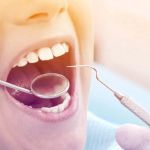Post-oral Surgery Care Instructions for Dental Implants: Ensuring a Smooth Recovery
- 1. Care for Your Dental Implants After Surgery
- 2. Managing Pain and Discomfort
- 3. Dealing with Swelling and Bleeding
- 4. Maintaining Oral Hygiene After Surgery
- 5. Diet and Lifestyle Recommendations During Recovery
- 6. When to See Your Dentist After Implant Surgery
1. Care for Your Dental Implants After Surgery
After undergoing oral surgery for dental implants, it's crucial to follow post-operative care instructions to promote optimal healing and avoid complications. Immediately following surgery, your dentist will provide specific care instructions tailored to your situation. This includes keeping the surgical area clean, avoiding pressure or excessive force on the implants, and following the prescribed medication plan to manage discomfort and prevent infection.
One common piece of advice is to avoid touching or disturbing the surgical site. You should refrain from chewing on the side of the mouth where the implants were placed during the initial healing phase. Using a soft toothbrush and avoiding hard or sticky foods will help ensure the area heals properly without undue stress on the implants.
2. Managing Pain and Discomfort
It’s normal to experience some pain or discomfort following oral surgery for dental implants. Pain can usually be managed with over-the-counter pain relievers like ibuprofen, or your dentist may prescribe stronger medication if necessary. Applying an ice pack to the outside of your face for the first 24 to 48 hours after surgery can help reduce swelling and provide pain relief.
Remember, while discomfort is common, you should never experience severe pain or excessive swelling. If these symptoms occur, it's important to contact your dentist immediately as it may indicate an infection or other complication.
3. Dealing with Swelling and Bleeding
Swelling and bleeding are common immediately following dental implant surgery. Most patients experience mild to moderate swelling around the implant area. To reduce swelling, follow the recommended ice pack application procedure as mentioned earlier. The swelling will typically peak within 48 hours and gradually subside.
Bleeding is also common after oral surgery, especially in the first few hours. Gently biting on gauze pads can help control the bleeding. If bleeding persists or is excessive, contact your dentist for guidance. Avoid spitting forcefully or sucking on straws, as these actions can disturb the blood clot and prolong bleeding.
4. Maintaining Oral Hygiene After Surgery
Proper oral hygiene is crucial to the healing process after dental implant surgery. However, you should be careful not to disturb the surgical site while brushing and flossing. For the first few days, it's advisable to rinse your mouth with a saltwater solution to keep the area clean. This will help reduce the risk of infection and promote healing.
After the initial few days, you can gently brush your teeth with a soft-bristled toothbrush. Avoid brushing directly on the implant site during the first few weeks. As healing progresses, you can gradually return to your normal oral hygiene routine, but be sure to continue using gentle brushing techniques around the implant area.
5. Diet and Lifestyle Recommendations During Recovery
During the recovery phase after dental implant surgery, it's essential to follow a diet that supports healing and minimizes discomfort. For the first few days, stick to soft foods like yogurt, mashed potatoes, and smoothies. Avoid crunchy, hard, or chewy foods that could put pressure on your implants or irritate the surgical site.
Drinking plenty of fluids is also important, but avoid alcohol, soda, and hot beverages, as these can interfere with the healing process. Additionally, avoid smoking, as it can slow down recovery and increase the risk of complications like implant failure.
6. When to See Your Dentist After Implant Surgery
After dental implant surgery, regular follow-up visits to your dentist are necessary to monitor the healing process. Your dentist will check that the implants are integrating properly with the bone and that there are no signs of infection or complications. These check-ups are crucial to ensure that your implants are healing as expected and to address any issues that might arise during recovery.
In some cases, your dentist may recommend additional treatments or adjustments if healing isn't progressing as planned. If you experience any unusual symptoms, such as persistent pain, swelling, or signs of infection, be sure to contact your dentist immediately for advice and assistance.







 West Covina Dental Group and Orthodontics4.0 (274 review)
West Covina Dental Group and Orthodontics4.0 (274 review) Dentist of Paoli5.0 (21 review)
Dentist of Paoli5.0 (21 review) Niloo Tavakol Inc4.0 (7 review)
Niloo Tavakol Inc4.0 (7 review) Cary Dental Rejuvenation4.0 (473 review)
Cary Dental Rejuvenation4.0 (473 review) Gentle Dental Moreno Valley4.0 (147 review)
Gentle Dental Moreno Valley4.0 (147 review) Corey L. Goldstein DMD4.0 (7 review)
Corey L. Goldstein DMD4.0 (7 review) The Importance of Oral Health Education During Pregnancy for a Healthy Pregnancy
The Importance of Oral Health Education During Pregnancy for a Healthy Pregnancy Best Tips for Brushing Your Teeth Properly for Healthy Gums: Essential Techniques for Oral Health
Best Tips for Brushing Your Teeth Properly for Healthy Gums: Essential Techniques for Oral Health Why Skipping Dental Checkups Can Lead to Bigger Oral Health Problems
Why Skipping Dental Checkups Can Lead to Bigger Oral Health Problems Advantages of Porcelain Dental Restorations
Advantages of Porcelain Dental Restorations How Can Diabetes Cause Tooth and Gum Problems? Preventing and Managing Oral Health Issues
How Can Diabetes Cause Tooth and Gum Problems? Preventing and Managing Oral Health Issues Healthy Habits for Promoting Good Oral Health and Hygiene: Tips for a Healthy Smile
Healthy Habits for Promoting Good Oral Health and Hygiene: Tips for a Healthy Smile